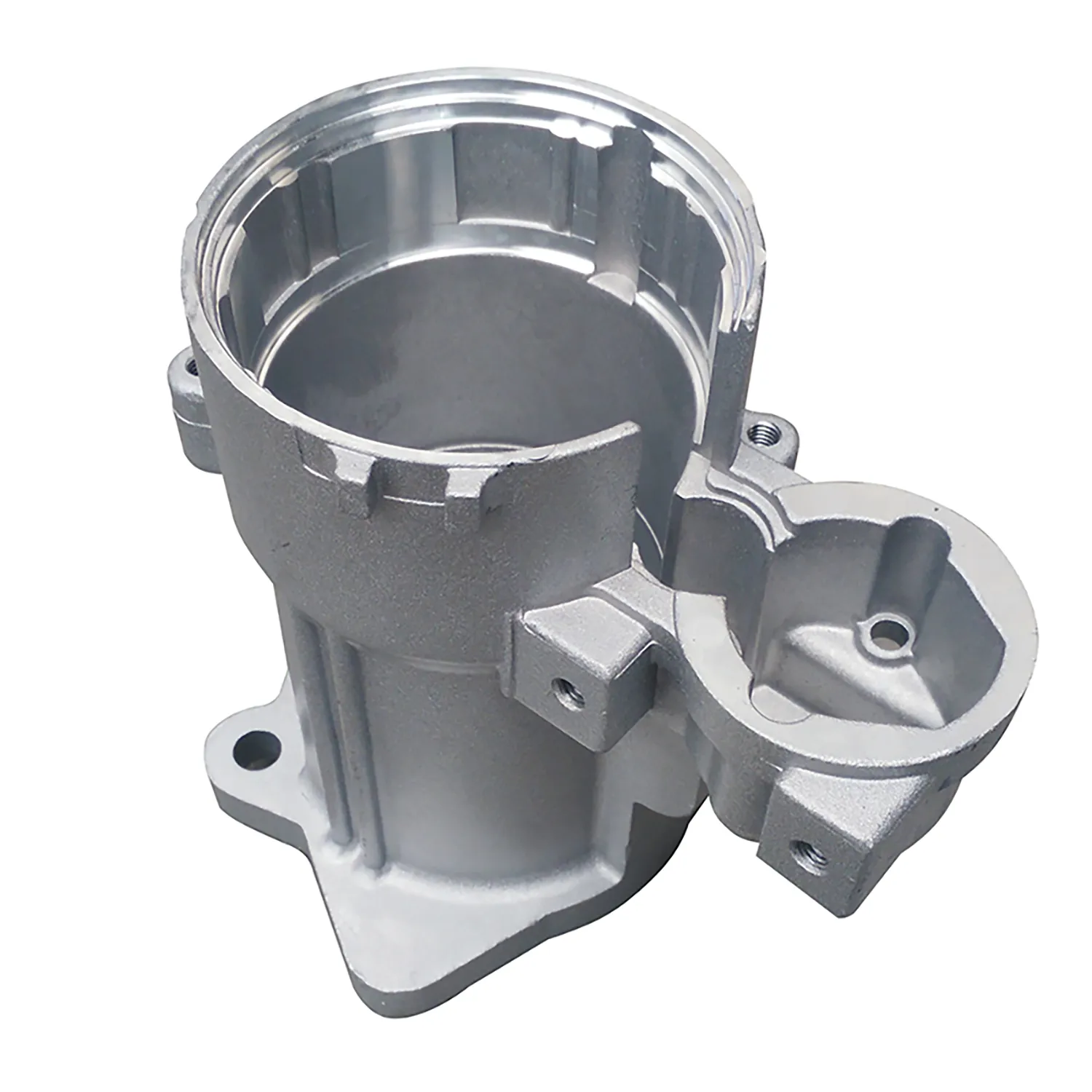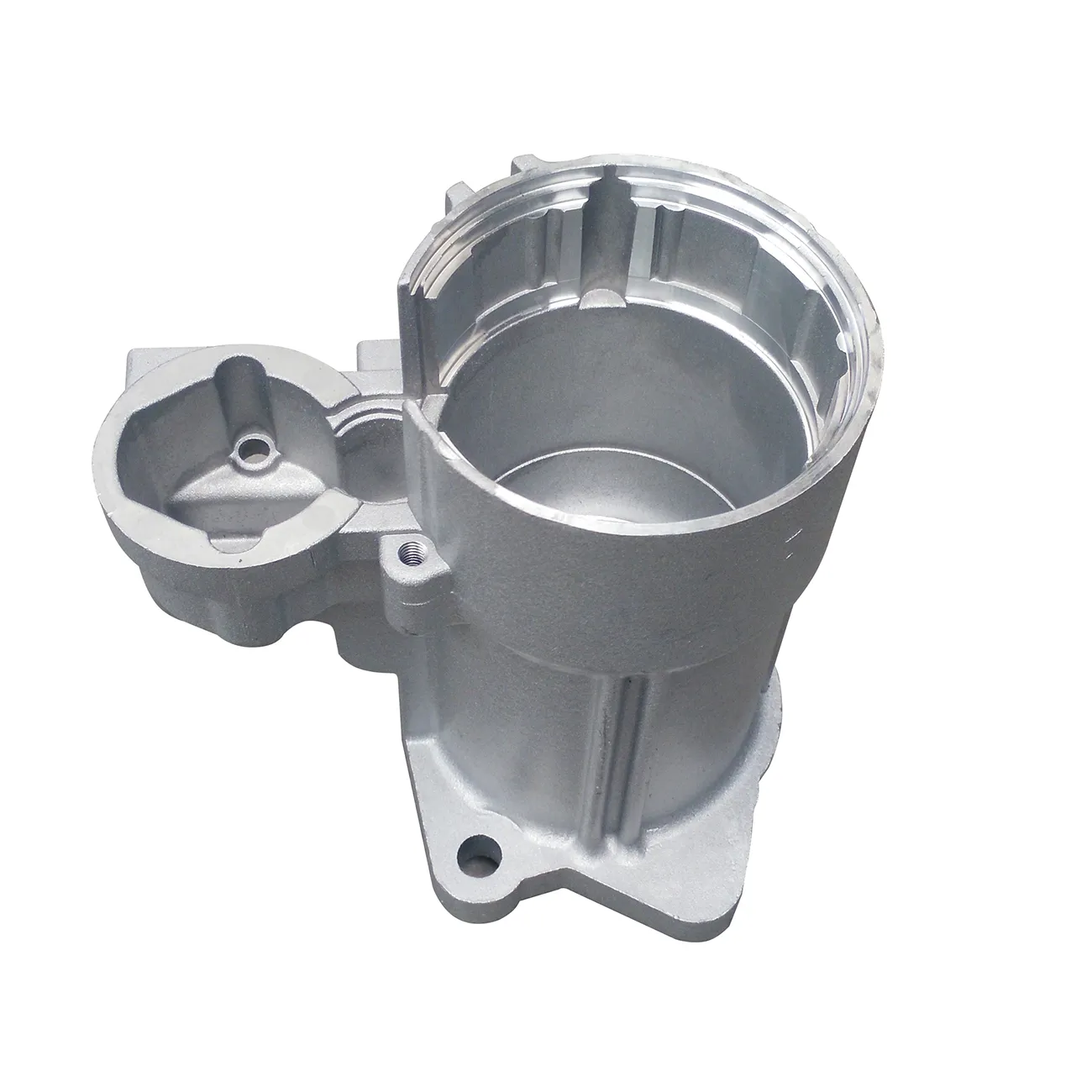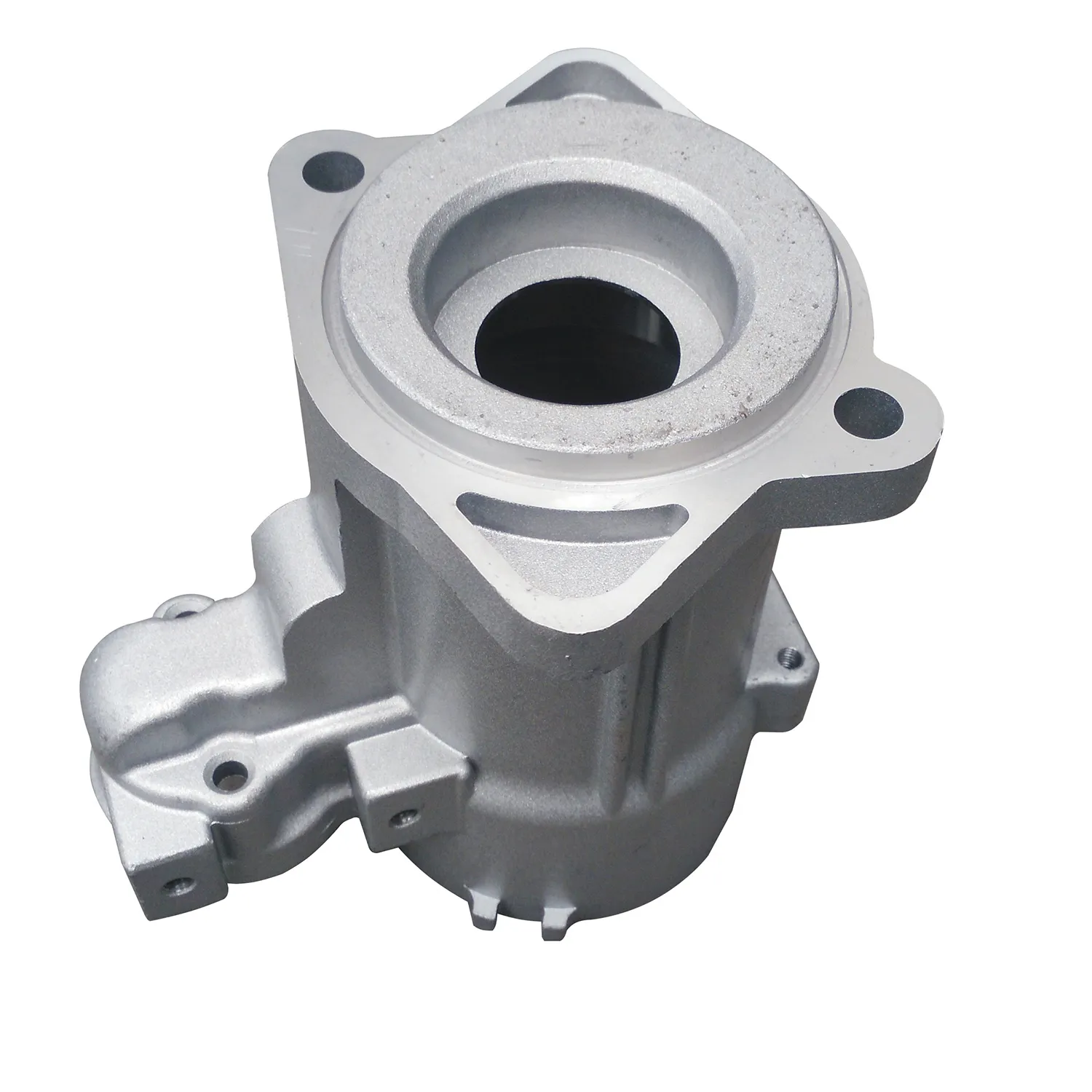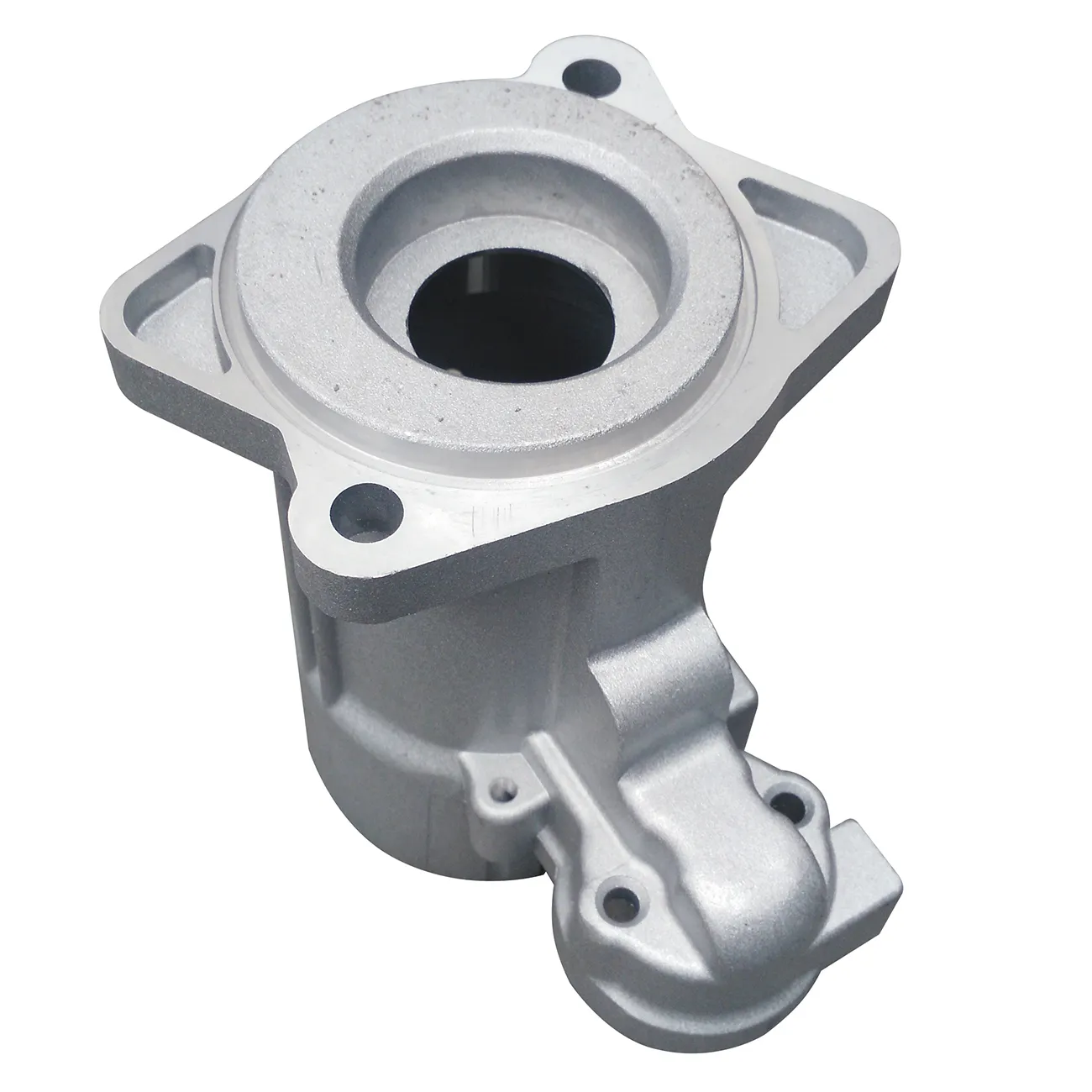Mobile:+86-311-808-126-83
Email:info@ydcastings.com
English
Precision Motor Housing: Durable & High-Performance Parts
Introduction to High-Performance Motor Housing Solutions
In the demanding landscape of industrial machinery and automotive applications, the structural integrity and operational efficiency of critical components are paramount. Among these, the motor housing serves as the foundational enclosure for electric motors, protecting internal components from environmental contaminants, ensuring precise alignment, and dissipating heat effectively. As a B2B manufacturer, we specialize in delivering robust, precision-engineered solutions that meet the stringent requirements of various sectors, including petrochemical, metallurgy, and water supply & drainage. Our commitment to advanced manufacturing techniques and rigorous quality control positions us as a trusted partner in providing superior enclosures for diverse motor types, from small fractional horsepower units to large industrial drives.
The quality of a motor enclosure directly impacts the motor's lifespan, efficiency, and reliability, making material selection, design, and manufacturing processes crucial. Modern advancements in casting and machining allow for intricate designs that optimize thermal management and vibration damping, crucial for applications where consistent performance under harsh conditions is non-negotiable. Furthermore, our expertise extends to specialized applications such as engine oil pans and automobile oil pans, often referred to as engine sumps or baffled oil pans, where similar principles of robust enclosure and thermal regulation are vital.
Detailed Manufacturing Process Flow
The creation of a high-performance motor housing is a multi-stage process, meticulously engineered to ensure superior structural integrity, thermal efficiency, and dimensional precision. Our process flow integrates advanced methodologies, from material selection to final inspection, adhering to international standards to guarantee product excellence.
1. Material Selection & Design
The initial phase involves selecting appropriate materials based on application requirements, considering factors like thermal conductivity, corrosion resistance, strength-to-weight ratio, and cost-effectiveness. Common materials include aluminum alloys (e.g., A356, ADC12 for excellent heat dissipation), cast iron (e.g., Grey Iron, Ductile Iron for high strength and vibration damping), and increasingly, specialized steels for extreme conditions. Design is optimized using CAD/CAM software for factors like internal ribbing for rigidity, cooling fin geometry, and mounting points, ensuring compliance with NEMA or IEC frame sizes.
2. Manufacturing Processes
We employ a range of advanced manufacturing techniques:
- Casting: This is a primary method for complex geometries.
- Sand Casting: Ideal for large, intricate parts with moderate production volumes, offering design flexibility for internal structures and cooling fins.
- Die Casting (High-Pressure/Low-Pressure): Suitable for high-volume production of lightweight aluminum motor housing with excellent surface finish and dimensional accuracy.
- Investment Casting: For extremely complex shapes and high-precision applications, yielding superior surface finish and minimal machining requirements.
- Forging: Utilized for high-strength requirements, typically for components that experience extreme mechanical stresses. Though less common for complete housings, certain structural elements might be forged.
- CNC Machining: Post-casting or forging, precision CNC machining ensures tight tolerances for bearing seats, mounting interfaces, and sealing surfaces. Multi-axis machining centers achieve intricate features and superior surface finishes essential for optimal motor performance.
- Welding & Assembly: For multi-component housings or integrated features, advanced welding techniques (e.g., TIG, MIG) ensure robust, leak-proof joints.
3. Surface Treatment & Finishing
Depending on the application, surfaces undergo treatments such as powder coating, anodizing (for aluminum), phosphating, or galvanizing to enhance corrosion resistance, electrical insulation, and aesthetic appeal. These treatments extend the service life, especially in aggressive environments.
4. Quality Control & Testing
Each motor housing undergoes rigorous testing to meet stringent quality standards. This includes:
- Dimensional Inspection: Using CMM (Coordinate Measuring Machine) and precision gauges to verify all critical dimensions and tolerances.
- Material Analysis: Spectroscopic analysis to confirm alloy composition.
- Non-Destructive Testing (NDT): X-ray, ultrasonic, and magnetic particle inspection for internal defects or porosity in castings.
- Pressure Testing: For sealed enclosures, ensuring integrity against fluid ingress.
- Vibration & Noise Testing: To assess the housing's ability to dampen operational vibrations.
Our adherence to international standards like ISO 9001:2015 for quality management, ANSI, and NEMA/IEC for product specifications, ensures consistent, high-quality output.

Industry Trends & Technical Specifications
The market for motor housing is continuously evolving, driven by advancements in motor technology, stricter environmental regulations, and the increasing demand for energy efficiency and reduced maintenance. Key trends include:
- Lightweighting: Driven by the automotive sector (e.g., for electric vehicles, where every gram counts for range and performance in engine oil pans and transmissions) and aerospace, there's a strong push towards lighter aluminum and magnesium alloys without compromising strength.
- Enhanced Thermal Management: High-efficiency motors generate less heat but require optimized dissipation strategies. This leads to more complex fin designs, integrated liquid cooling channels, and advanced materials with higher thermal conductivity.
- Increased Durability & Corrosion Resistance: For harsh environments (e.g., petrochemical plants, marine applications, mining), coatings and material compositions offering superior resistance to chemical attack, abrasion, and extreme temperatures are increasingly important.
- Modularity & Customization: The demand for modular designs that allow for easy integration of various motor types, sensor arrays, and mounting configurations is growing.
- Noise and Vibration Reduction: Advanced designs incorporate features to minimize acoustic emissions and mitigate mechanical vibrations, crucial for sensitive industrial processes and automotive comfort.
Typical Product Specifications for Industrial Motor Housing
Below is a representative table of specifications for a robust industrial motor housing, demonstrating the precision and performance parameters engineered into our products. These specifications are crucial for B2B clients to ensure compatibility and optimal performance in their systems.
| Parameter | Specification | Standard/Notes |
|---|---|---|
| Material | Aluminum Alloy (A356, ADC12), Grey Cast Iron (GG25), Ductile Iron (GGG50) | Selected based on strength, thermal, and corrosion needs |
| Frame Size Compatibility | NEMA (e.g., 56C to 449T), IEC (e.g., 63 to 355) | Industry-standard mounting and shaft heights |
| Ingress Protection (IP) Rating | IP55 to IP67 (Standard) | Protection against dust and water jets/immersion |
| Operating Temperature Range | -40°C to +180°C (Material dependent) | Crucial for high-temperature applications |
| Surface Finish | Ra 3.2 – Ra 6.3 µm (machined surfaces) | Ensures proper sealing and aesthetic quality |
| Dimensional Tolerance | ISO 2768-mK or higher (specific features) | For critical interfaces and bearing fits |
| Corrosion Resistance | Salt Spray Test > 1000 hours (for treated surfaces) | ASTM B117 compliance for environmental durability |
| Service Life Expectancy | 20+ years under specified conditions | Based on material, design, and operating environment |

Application Scenarios & Technical Advantages
Our custom-engineered motor housing solutions are deployed across a broad spectrum of industries, providing critical protection and performance enhancement for electric motors in challenging operational environments. The robust design and material choices deliver significant technical advantages tailored to specific sector needs.
Target Industries:
- Petrochemical: Motors operate in environments prone to corrosive chemicals, explosive gases, and extreme temperatures. Our housings feature specialized coatings and materials (e.g., explosion-proof designs) to ensure safety and longevity, critical for pumps, compressors, and agitators.
- Metallurgy: High heat, abrasive dust, and heavy vibrations characterize steel mills and foundries. Cast iron housings provide excellent vibration damping and thermal stability, crucial for rolling mills, conveyors, and furnace drives.
- Water Supply & Drainage: Submersible pumps and filtration systems require corrosion-resistant, watertight enclosures. Aluminum alloys with advanced anodizing offer superior protection against water ingress and chemical attack from treated water.
- Automotive (EV/ICE): For electric vehicle traction motors, lightweight aluminum housings with integrated cooling channels are essential for thermal management. In internal combustion engines, precisely engineered automobile oil pans (engine sumps, baffled oil pans) manage lubrication and heat dissipation effectively.
- Renewable Energy: Wind turbines and solar tracking systems demand highly durable, weather-resistant housings for their pitch and yaw motors, capable of withstanding prolonged exposure to elements.
Technical Advantages in Application Scenarios:
- Energy Saving: Optimized thermal conductivity and fin designs in our aluminum housings ensure efficient heat dissipation. This prevents motor overheating, which can lead to reduced efficiency and increased power consumption, thus contributing to significant energy savings over the motor's operational life.
- Corrosion Resistance: By utilizing marine-grade aluminum alloys or specialized coatings on cast iron, our housings offer exceptional resistance to corrosive agents, saltwater, and harsh industrial chemicals. This extends the service life of motors in environments where standard enclosures would rapidly degrade.
- Vibration Damping: The inherent properties of ductile iron, combined with optimized structural ribbing, effectively absorb and dampen motor vibrations. This reduces noise, prevents fatigue in connected machinery, and prolongs the lifespan of bearings and other sensitive internal components.
- Enhanced Sealing Capabilities: Precision machining of sealing surfaces and the integration of advanced gasket materials ensure superior ingress protection (IP ratings up to IP68), safeguarding against dust, moisture, and liquid immersion, critical for outdoor or wet applications.
- Improved Structural Rigidity: Advanced casting techniques allow for complex internal geometries that maximize structural rigidity while minimizing weight. This ensures precise rotor-stator alignment under dynamic loads, crucial for maintaining motor efficiency and preventing premature wear.

Vendor Comparison & Customized Solutions
When selecting a supplier for motor housing components, discerning B2B clients evaluate several critical factors beyond mere cost. Our differentiator lies in a holistic approach encompassing technical prowess, quality assurance, and comprehensive client support.
Key Vendor Comparison Criteria:
| Criterion | Our Offering | Standard Vendor Offering |
|---|---|---|
| Manufacturing Expertise | Multi-process capabilities (Sand, Die, Investment Casting; CNC Machining) with 20+ years in complex industrial castings. | Typically specialized in one or two casting methods, limited machining. |
| Quality & Certifications | ISO 9001:2015 certified; rigorous in-house NDT, CMM inspection, material traceability. Adherence to ASTM, DIN, JIS standards. | Basic QC; may lack comprehensive NDT or international certifications. |
| Customization & R&D | Dedicated engineering team for design optimization, material development, rapid prototyping. Full DFM (Design for Manufacturability) support. | Limited customization to existing designs; outsourced R&D. |
| Application Experience | Extensive experience across petrochemical, metallurgy, automotive (engine oil pan, EV casings), water treatment. | Often focused on a narrow range of industries or motor types. |
| Lead Time & Fulfillment | Optimized supply chain; average 4-6 weeks for tooling, 2-4 weeks for production run. Expedited options available. | Variable, often longer lead times due to less integrated processes. |
| After-Sales Support | Dedicated account managers, technical support, comprehensive warranty, failure analysis. | Limited to replacement; less technical support. |
Tailored & Customized Solutions:
Recognizing that off-the-shelf solutions rarely meet the precise demands of specialized industrial applications, we excel in providing fully customized motor housing solutions. Our engineering team collaborates closely with clients from initial concept to final production, offering:
- Design for Manufacturability (DFM): Optimizing client designs for cost-effectiveness, material efficiency, and ease of production without compromising performance.
- Material Expertise: Guidance on selecting the optimal alloy or cast iron grade, considering environmental factors, thermal load, mechanical stress, and budget. For example, specific grades of aluminum for marine environments or high-strength ductile iron for heavy-duty gearboxes.
- Integrated Features: Customization includes integrated cooling channels, unique mounting flanges, specialized cable entries, sensor ports, or provisions for specific bearing types and sealing arrangements. This includes sophisticated baffled oil pan designs for performance engine applications.
- Surface Treatment Options: A wide array of coatings (e.g., e-coating, powder coating, zinc plating, galvanizing, chemical passivation) to meet specific corrosion protection, electrical insulation, or aesthetic requirements.
- Prototyping & Testing: Rapid prototyping capabilities coupled with comprehensive in-house testing allow for quick iteration and validation of custom designs, significantly reducing time-to-market.

Application Case Studies
Our expertise in manufacturing high-quality castings is validated through numerous successful deployments in critical industrial and automotive applications. These case studies highlight our capability to deliver precise, durable, and performance-optimized solutions.
Case Study 1: High-Efficiency Pump Motor Housing for Wastewater Treatment
- Challenge: A major municipal wastewater treatment plant required a new series of submersible pump motor housings that could withstand highly corrosive wastewater, frequent immersion, and abrasive suspended solids while maintaining optimal motor temperatures.
- Solution: We engineered a specialized aluminum alloy motor housing (A356 with enhanced corrosion inhibitors) produced via high-pressure die casting for superior surface finish and density. The design incorporated optimized cooling fins and an advanced two-layer anodized coating, achieving an IP68 rating.
- Result: The new housings demonstrated a 30% increase in service life compared to previous solutions, significantly reducing maintenance costs and downtime for the plant. The improved thermal management also led to a 5% increase in motor efficiency, contributing to energy savings.
Case Study 2: Precision Engine Oil Pan for Heavy-Duty Automotive Application
- Challenge: A leading heavy-duty truck manufacturer needed a robust engine oil pan capable of enduring extreme road vibrations, thermal cycling, and containing up to 30 liters of lubricant, while minimizing oil aeration during aggressive maneuvers.
- Solution: We developed a custom ductile iron engine sump, utilizing a specialized sand casting process to achieve intricate internal baffling structures (a baffled oil pan design). This was followed by precision CNC machining for critical sealing surfaces and mounting points. The material choice provided excellent vibration damping.
- Result: The redesigned automobile oil pan significantly reduced oil aeration by 40% under dynamic conditions, ensuring consistent oil pressure and lubrication. The enhanced structural integrity improved engine reliability and reduced warranty claims related to oil system failures.
Case Study 3: Explosion-Proof Motor Housing for Petrochemical Industry
- Challenge: A chemical processing plant required explosion-proof motor housings for hazardous areas (Class I, Division 1), demanding stringent material integrity, precise flame paths, and robust construction to contain potential internal explosions.
- Solution: We manufactured a heavy-duty cast iron motor housing using a specialized high-density sand casting technique. Critical features like flame paths and threaded entries were CNC machined to exceptionally tight tolerances (±0.02mm). Each unit underwent 100% X-ray inspection for porosity and pressure testing to ensure integrity.
- Result: The housings successfully passed ATEX and IECEx certifications, ensuring full compliance with explosion protection directives. This provided the client with reliable, certified equipment for their hazardous operations, enhancing safety and operational continuity.
Trustworthiness & Client Support
Building and maintaining trust with our B2B partners is fundamental to our operations. We ensure transparency, reliability, and robust support throughout the entire project lifecycle, from inquiry to post-delivery services.
Frequently Asked Questions (FAQ):
- Q: What is your typical lead time for custom motor housing solutions?
- A: Lead times vary based on complexity and order volume. For new tooling and initial samples, expect 4-6 weeks. Production runs typically follow in 2-4 weeks. Expedited options are available for urgent requirements.
- Q: What kind of quality certifications do you hold?
- A: We are ISO 9001:2015 certified, demonstrating our commitment to quality management systems. Our products adhere to relevant international standards such as ASTM, DIN, JIS, NEMA, and IEC, and can be certified to specific industry requirements like ATEX for explosion protection.
- Q: Do you offer design assistance for motor housing components?
- A: Yes, our experienced engineering team provides comprehensive Design for Manufacturability (DFM) support. We work collaboratively with your engineers to optimize designs for performance, cost-efficiency, and production feasibility, including material selection and process recommendations.
- Q: What warranty do you provide on your motor housing products?
- A: We offer a standard 12-month warranty against manufacturing defects from the date of shipment. Specific project contracts may include extended warranties based on application and volume. Our commitment extends to robust after-sales support to address any performance concerns.
Lead Time & Fulfillment:
Our integrated production facilities and optimized supply chain management ensure reliable lead times. We utilize advanced ERP systems to track orders, manage inventory, and provide real-time updates to our clients. For large-volume projects or consistent supply, we can implement consignment inventory or JIT (Just-In-Time) delivery systems.
Warranty & After-Sales Support:
Beyond our standard product warranty, our commitment to client success extends to comprehensive after-sales support. This includes technical assistance, field service support, and a responsive customer service team dedicated to resolving any issues promptly. We conduct root cause analysis for any reported non-conformances to continuously improve our processes and product reliability. Our long-term relationships with global OEMs are a testament to our unwavering dedication to quality and service.
References
- ISO 9001:2015 - Quality Management Systems - Requirements. International Organization for Standardization.
- NEMA MG 1-2021 - Motors and Generators. National Electrical Manufacturers Association.
- IEC 60034-1:2017 - Rotating electrical machines - Part 1: Rating and performance. International Electrotechnical Commission.
- ASM Handbook, Volume 15: Casting. ASM International.
- ASTM B117-19 - Standard Practice for Operating Salt Spray (Fog) Apparatus. ASTM International.
-
Materials Used in Manufacturing Cap End Pipe FittingsNewsNov.24,2025
-
Material Properties of CF8M CastingNewsNov.24,2025
-
How to Inspect Pump Cap Ends for DamageNewsNov.21,2025
-
Backward Curved Impeller – Efficient Airflow Solutions for Industry | YD CastingsNewsNov.21,2025
-
Automobile Water Pump - Efficient, Quiet, Durable & ElectricNewsNov.21,2025
-
Impeller for Pumps – High-Efficiency, Durable, OEM-ReadyNewsNov.21,2025











